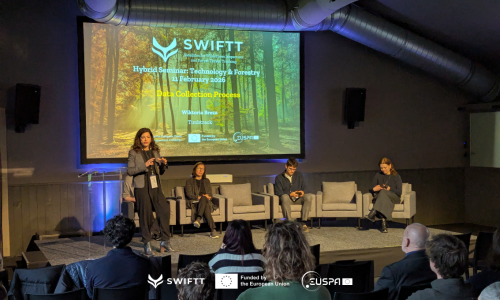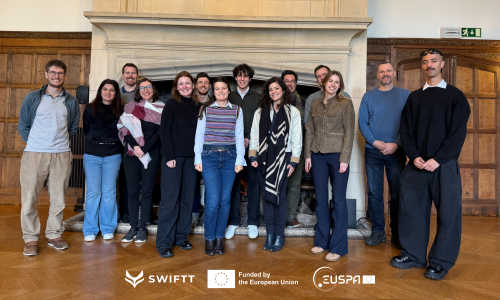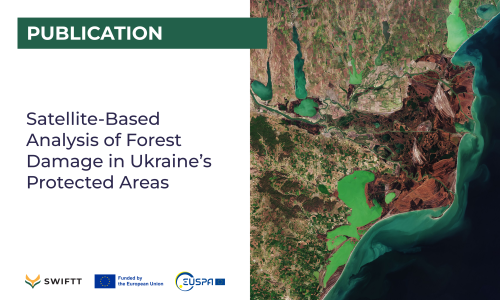Stay updated with the latest developments from SWIFTT by subscribing to our newsletter!
Forests worldwide are the habitat for the majority of amphibian, bird, and mammal species. They are also home to 300 million people and provide livelihood for another 1.6 billion. Benefits delivered by this ecosystem – in the form of hydrological regulation, erosion prevention, and carbon storage, among others – amount to over €100 trillion per year, more than the whole global GDP.
Despite being highly resilient to long-term changes in environmental conditions, forests are vulnerable to sudden changes, such as insect outbreaks, wildfires, and windthrow, i.e. the uprooting of a tree caused by the wind. Those risks are intensified by climate change: insects breed more frequently, more dry fuel for wildfires becomes available, and the frequency and severity for large storms increase. As a result, countless habitats are lost, and CO2 sequestered yearly decreases by over 4850M tons.
However, with early and appropriate action, risks can be contained, and the economic and ecological damage can be reduced. SWIFTT will provide forest managers with affordable, simple and effective remote sensing tools backed up by powerful machine learning models. Our solution will offer a holistic health monitoring service using Copernicus satellite imagery to detect and map the various risks to which forests and their managers are exposed.












